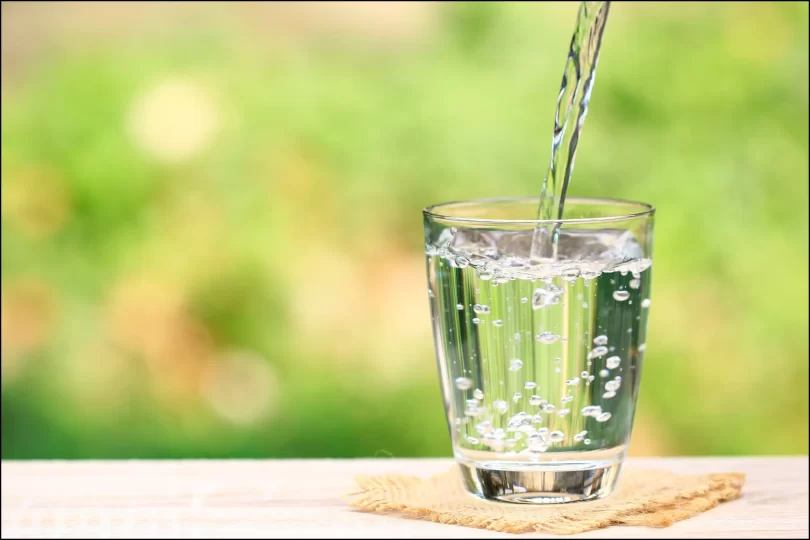Water is often considered a tasteless substance, yet there are times when people notice a distinct sweetness. This can be puzzling, especially when it happens out of the blue. In this article, we’ll explore why water tastes sweet, the science behind it, and whether it’s a cause for worry.
What is the Taste of Water?
Most individuals find the taste of water neutral. Free of dissolved minerals and contaminants, pure water has no characteristic flavor. However, water is rarely seen in its purest form. It frequently contains dissolved minerals, gasses, and other substances that might slightly affect flavor. These components explain why the taste of water varies depending on its source.
But what makes water taste sweet at times? To understand this phenomenon, consider the physical, chemical, and environmental elements that influence water.
Why Does My Water Taste Sweet?
There are several reasons why water tastes sweet to some people, ranging from natural causes to external factors:
1. Mineral Content in Water
Water obtained from subterranean aquifers frequently contains naturally occurring minerals such as calcium, magnesium, and potassium. These minerals can make water taste slightly sweeter, and the sweetness is most perceptible in water containing a high concentration.
2. Alkalinity and pH levels
Water with a higher pH (more alkaline) typically tastes sweeter than acidic water. Alkaline water balances its ions differently, which can slightly increase sweetness. This is why alkaline water may have a different flavor than typical tap water.
3. Physical state of the body
Your body’s hydration status might affect how you experience the taste of water. Your body desires water after exercise or when you’re thirsty, and your taste buds may magnify its sweetness to encourage you to drink.
4. Chemical Composition and Contamination
If your water contains trace amounts of organic compounds, microorganisms, or byproducts from industrial activities, they can provide a pleasant flavor. While this may sound scary, it does not always indicate that the water is dangerous.
5. Health Conditions and Medications
Some medical issues, such as elevated blood sugar (an indication of diabetes), might affect taste perception. Similarly, several drugs or therapies may enhance sweetness perception.
Other Factors Influencing Sweet-Tasting Water
In addition to the primary causes, some external factors can make water-tasting sweet a more frequent experience:
1. Pipes and Plumbing Materials
Materials used in plumbing systems can leach minerals or metals into the water, subtly affecting its flavor. For example, old copper or iron pipes might impart a metallic sweetness.
2. Bottled or filtered water
The composition of bottled water or water from a filtration system may vary due to additional minerals or the filtering process. Reverse osmosis systems, for example, eliminate many pollutants from water, highlighting the remaining minerals and giving them a sweet taste.
3. Temperature
Water’s temperature can influence its perceived flavor. Cooler water typically tastes sweeter because cold lowers bitter and sour taste receptors.
Is Sweet-Tasting Water Safe?
In most cases, water tasting sweet is not a cause for concern. It is entirely safe when the sweetness is due to natural minerals, pH levels, or your body’s hydration state. However, a sudden or unusual change in flavor might warrant a closer look:
- Test Your Water: Using at-home testing kits or professional services, you can check your water for contaminants or imbalances.
- Inspect Your Plumbing: Old or poorly maintained pipes might introduce impurities that affect water quality.
- Monitor Your Health: If the sweet taste persists and is accompanied by other symptoms, consult a healthcare provider.
Conclusion
Mineral content, pH levels, health, and even environmental variables all impact why my water tastes so sweet. In most circumstances, sweet-tasting water is harmless and just reflects its natural constituents. However, if the sweetness is sudden, persistent, or accompanied by other issues, it is best to test the water and consult a specialist. Understanding the variables that cause water to taste sweet will help you ensure that your water is both safe and enjoyable to drink.
Spring or alkaline water often tastes sweeter due to its natural minerals and higher pH level; find out more about the different types of water.
FAQs
Can dehydration make water taste sweet?
Yes, dehydration can enhance your perception of water’s sweetness. When your body craves hydration, your taste buds may amplify the sweetness to encourage drinking.
Does salt neutralize sweetness in water?
Yes, adding a small amount of salt can help neutralize sweetness in water. Salt stimulates other taste receptors, balancing out the overall flavor profile.
Does bottled water taste sweeter than tap water?
Bottled water can taste sweeter than tap water because it often contains added minerals for flavor or comes from natural sources with a specific mineral composition.









